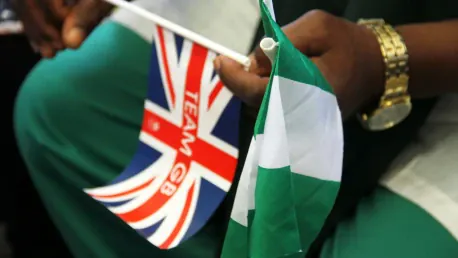The Nigerian government has firmly denied allegations of human rights abuses levied by the Trade Union Congress (TUC) of the United Kingdom, specifically addressing claims involving NLC President Comrade Joe Ajaero. These refutations emerged from Bayo Onanuga, Special Adviser to the President on Information and Strategy, who explained that Ajaero was prevented from traveling abroad exclusively due to his non-compliance with an ongoing investigation by a Nigerian law enforcement agency. Onanuga emphasized that such actions are lawful measures under the purview of Nigeria’s amended 1999 Constitution, asserting that all individuals, including Ajaero, are subject to lawful investigations just as they would be in other law-governed nations like the UK. He went on to dismiss the TUC’s accusations as baseless and rooted in substantial misunderstanding, highlighting the Nigerian government’s commitment to civil liberties under its current pro-democracy leadership.
Commitment to Legal Framework and Pro-Democracy
Onanuga insisted that no one in Nigeria is above the law, underscoring the nation’s adherence to its constitutional framework and its commitment to lawful investigations. He articulated that these processes are reflective of those in other democratic nations, particularly drawing parallels to the United Kingdom. Onanuga stressed that the government is steadfast in protecting civil liberties as part of its pro-democracy agenda, and that no actions taken against Comrade Ajaero fell outside the bounds of legal propriety. Rather than viewing this travel ban as a breach of human rights, Onanuga suggested that it should be seen as a routine legal measure aimed at ensuring compliance with ongoing investigations, thereby preserving the integrity of the legal system.
He also took the opportunity to criticize the TUC’s interpretation of events, positioning their claims as both unfounded and a result of misunderstanding the legal context in which Nigeria operates. According to Onanuga, the TUC’s stance appears suspiciously aligned with political biases that do not take into account the Nigerian government’s genuine efforts to uphold democratic principles. By rejecting these accusations, Onanuga aims to foster a clearer, more accurate understanding of Nigeria’s policy frameworks which guide its actions, assuring that the nation remains committed to democratic values and practices, including the lawful handling of investigations.
Government Relationship with Labor Movements
Addressing the perceived relationship between the government and labor movements, Onanuga maintained that there is no adversarial dynamic. While he acknowledged that policy disagreements certainly exist, these should not be construed as evidence of human rights abuses or government overreach. Onanuga suggested that these disagreements are a natural component of a healthy democracy where varied opinions contribute to robust policy debates and decision-making processes. He underscored that past instances where labor unions have opposed government policies, such as the sale of the Port-Harcourt and Kaduna Refineries in 2007, have been motivated by differing economic perspectives rather than fundamental opposition to the government itself.
Onanuga further illustrated labor unions’ shifting positions by pointing out that these very organizations, which once staunchly opposed certain economic reforms, now praise industrialist Aliko Dangote for his successful establishment of the world’s largest single-train refinery. He argued that these inconsistencies in labor union positions highlight a pattern of resistance to progress, thereby obstructing economic growth and development. Despite these challenges, he reaffirmed President Tinubu’s administration’s resolve to pursue economic policies that are designed to benefit the Nigerian populace, addressing immediate challenges while striving to expand the nation’s economic output and prosperity.
Economic Policies and Future Prospects
Onanuga emphasized that there is no adversarial relationship between the government and labor movements, despite notable policy disagreements. He argued that these disagreements are not evidence of human rights abuses or government overreach, but rather a sign of a healthy democracy where differing opinions fuel robust policy debates. He pointed out that past conflicts, like the labor unions’ opposition to the sale of the Port-Harcourt and Kaduna Refineries in 2007, stemmed from divergent economic views, not fundamental opposition to the government.
Highlighting labor unions’ changing stances, Onanuga noted how organizations that once opposed specific economic reforms now commend industrialist Aliko Dangote for building the world’s largest single-train refinery. He suggested these shifts reveal a tendency to resist progress, thereby hindering economic development. Regardless of these challenges, he affirmed President Tinubu’s administration’s commitment to implementing economic policies designed to benefit Nigerians. The administration aims to address immediate issues while working to enhance national economic growth and prosperity.









